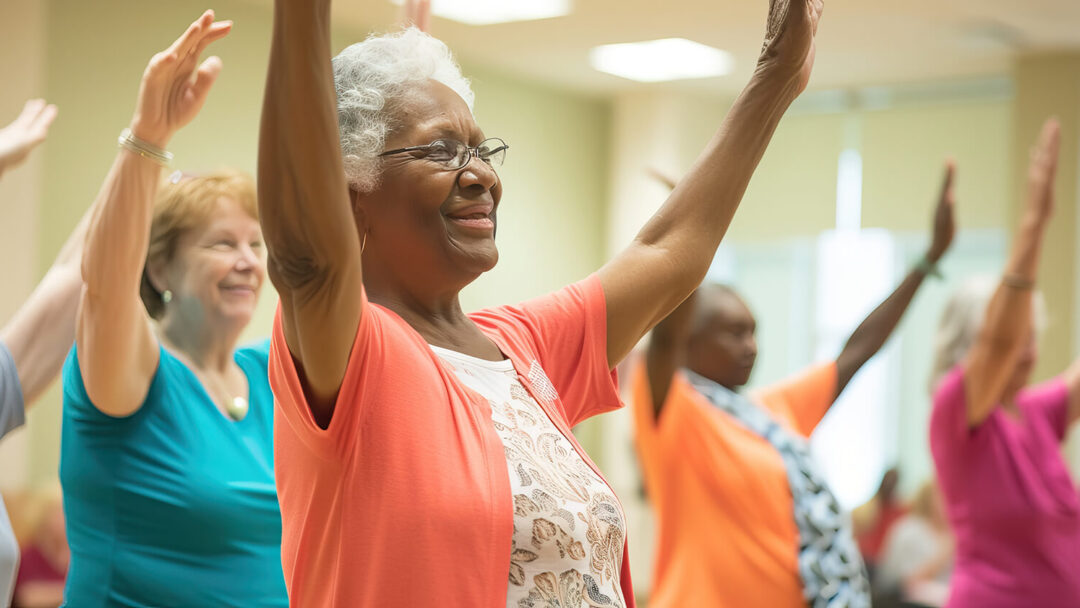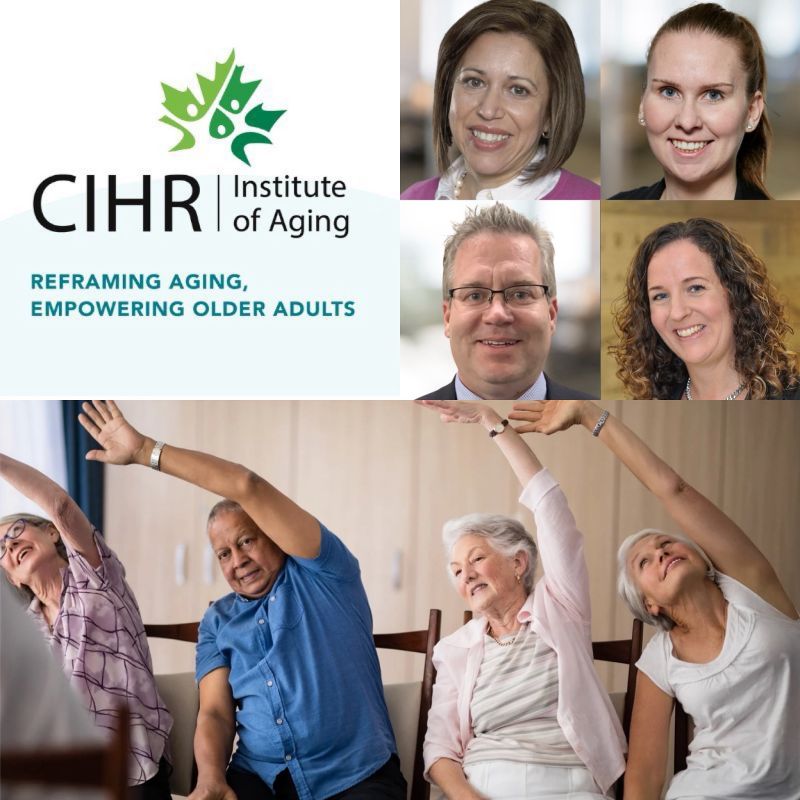Health innovation hub fast-tracks expansion of dance program for older adults

By Eileen Hoftyzer
For older adults who want to remain independent and age at home, dance can be one tool to maintain their health, improve cognition and reduce frailty.
“Dance is not only good for your body, it’s good for your brain,” says Dr. Alexandra Papaioannou, professor in the Department of Medicine at McMaster University and executive director of the Geras Centre for Aging Research. “Dancing helps to train the body to maintain balance, preventing falls. It involves learning new movements, paying attention to instructions, and using memory and planning skills. All of these activities help keep the mind and body healthy.”
These benefits inspired Dr. Papaioannou and a team of rehabilitation and geriatric medicine experts at the Geras Centre for Aging Research at Hamilton Health Sciences and McMaster University in partnership with YMCA of Hamilton Burlington Brantford. They developed an evidence-based dance program, GERAS DANcing for Cognition and Exercise (DANCE).
The program incorporates a variety of music and dance styles, is adaptable based on the needs of the participants, and allows older adults to socialize, a key factor in reducing risk of dementia. Each week builds on the skills learned the previous week to keep participants challenged.
“With physiotherapy and occupational therapy for rehabilitation, you need people to be challenged, otherwise they’re not going to improve,” says Dr. Papaioannou. “GERAS DANCE is unique in that agility, balance and coordination of participants are continually challenged.”
After a small pilot study in 2019 showed promising physical and social benefits for older adults, the team realized the program had potential to be commercialized but didn’t know how to start. They turned to The Clinic health innovation hub for support, with members of the team participating in both the six-week Health Innovation Bootcamp and the nine-month Residency @ The Clinic in 2021.
Both programs provided valuable coaching and mentorship, particularly from Lianna Genovese of ImaginAble Solutions, as well as information sessions where participants learned how to move their idea forward to a commercial product.
“I valued being a part of a community where everyone’s so excited about innovation. It was wonderful to connect with like-minded people, and discuss challenges to commercialization and potential solutions,” says Dr. Patricia Hewston, research associate of the Geras Centre for Aging Research who participated in the Residency @ The Clinic. “The Residency helped us to learn how to communicate our story, both verbally in a pitch competition or in writing for grant applications.”
As clinician scientists, the GERAS DANCE team had vast experience writing grant proposals for an academic audience. But Dr. Papaioannou says that the bootcamp taught her to tailor the pitch to difference audiences.
“Learning how to do an elevator pitch has been such a useful skill. Having to actually present the pitch, why we care, and what difference we can make was a wonderful opportunity of learning,” she says. “Those skills and that language is essential, not only in presenting to other entrepreneurs or investors, but also as physicians speaking to hospital leadership.”
Since the bootcamp and residency programs, GERAS DANCE has grown in popularity. The program is now used at more than 40 sites across Canada by thousands of participants, and since launching a video on-demand option during the COVID-19 pandemic, more than 1000 older adults in the first three months of launching have accessed GERAS DANCE sessions.
 Building on their success, the GERAS DANCE team was recently awarded a three-year, $569,926 project grant from the Canadian Institutes of Health Research (CIHR) to run a clinical trial comparing three one-hour sessions per week GERAS DANCE to usual activities. With conventional rehabilitation services for older adults being costly and limited, alternative programs to prevent and treat frailty and help older adults remain independent, such as GERAS DANCE, are much needed.
Building on their success, the GERAS DANCE team was recently awarded a three-year, $569,926 project grant from the Canadian Institutes of Health Research (CIHR) to run a clinical trial comparing three one-hour sessions per week GERAS DANCE to usual activities. With conventional rehabilitation services for older adults being costly and limited, alternative programs to prevent and treat frailty and help older adults remain independent, such as GERAS DANCE, are much needed.
The GERAS DANCE team says The Clinic has helped to fast-track the program and allowed it to expand across Canada, giving more older adults access to it.
“The programs at The Clinic are so innovative,” says Dr. Papaioannou. “We need these kinds of innovation programs to keep medicine exciting and make the system changes that health care needs.”

